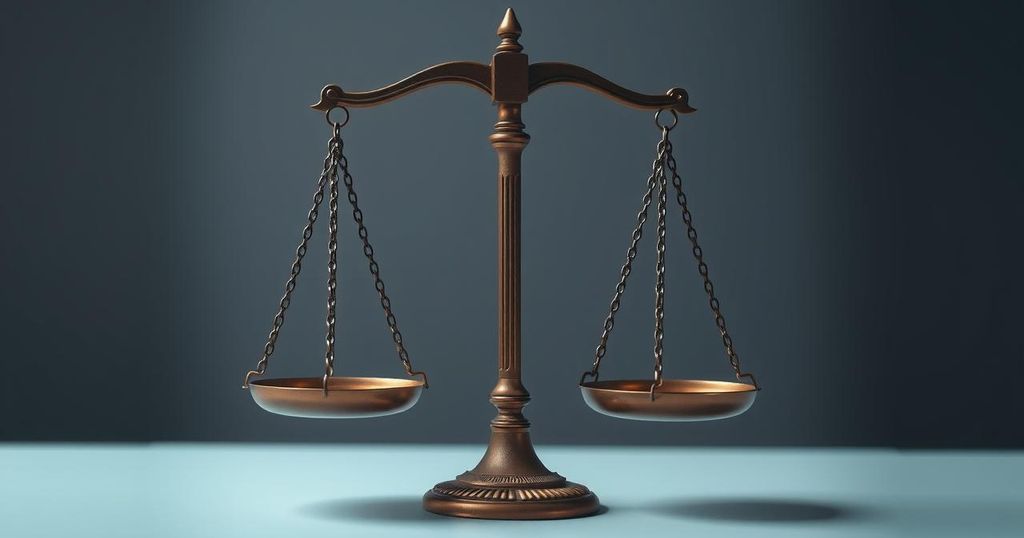Duterte’s Due Process: An Irony of Justice Denied to Victims
This article discusses the irony of former President Rodrigo Duterte receiving due process after his brutal anti-drug policies resulted in thousands of deaths. It highlights the pain of victims’ families, such as Juan’s widow, who experience profound grief and trauma. Despite being arrested for crimes against humanity, Duterte retains political support and influence in the Philippines, underscoring a complex legacy of violence and injustice.
The article examines the ironic situation wherein former Philippine President Rodrigo Duterte, who initiated a brutal drug war resulting in the deaths of thousands, is now experiencing the legal protections he denied to his victims. It opens with the story of Constantino De Juan, who was killed during a police operation framed as a justification for Duterte’s violent anti-drug policies. Estimates suggest that between 6,252 and 30,000 individuals were killed under this campaign, with human rights groups providing the higher figure.
The suffering of the victims’ families is profound, as articulated by Juan’s widow, Lourdes, who expresses mixed feelings of joy and sorrow upon Duterte’s arrest at The Hague for crimes against humanity. She recounts the impact of his death on their family, underscoring the irreversible trauma inflicted on their children, who witnessed his murder. The article recounts various conversations with families of victims, drawing attention to their grief and fears that the cycle of violence remains unbroken.
Duterte’s policies encouraged violence against suspected drug users, painted as a form of public service rather than murder. The article describes the societal trauma inflicted by his regime, with victims often found in horrific circumstances and their families continually mourning the loss of their loved ones. The narrative builds on personal stories that highlight the inconsistency between Duterte’s treatment and that of the ordinary citizens he targeted.
Following his arrest, Duterte was afforded luxuries and due process typically reserved for those in power, contrasting sharply with the lives of his victims. While he receives legal rights, the thousands of victims were denied even basic human rights and dignity. Despite facing international charges, Duterte retains considerable support in the Philippines, with a strong political legacy continued by his daughter, who now serves as vice president, indicating the lingering influence of his administration.
In the closing reflections shared by Juan’s son, Cejhay, the emotional toll of his father’s death becomes evident. He remembers his father’s kindness and longs for his presence, illustrating the human cost of Duterte’s violent policies. The article encapsulates the paradox of a leader receiving the very justice he orchestrated the denial of, revealing the deep scars left upon the society he governed.
In conclusion, the article elucidates the profound irony and injustice within the legal proceedings against Rodrigo Duterte, as he now enjoys due process while denying countless victims the same. Victims’ families continue to live with their memories of loss and trauma, exemplifying the enduring impact of Duterte’s violent drug war. Their stories serve as poignant reminders of the human cost of state-sanctioned violence, even as Duterte maintains a robust public support system within the Philippines.
Original Source: www.nytimes.com




Post Comment